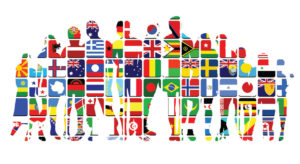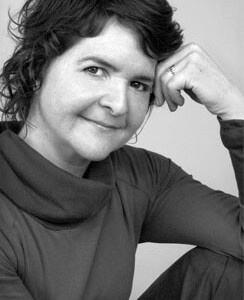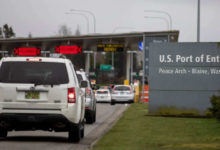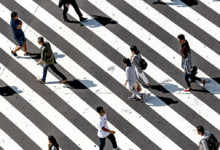Canada Day An opportunity to reflect

For many it is just a day off. For many others it has long been a day of true celebration and gratitude for the country that gave birth or welcomed them.
National pride made many people take to the streets wearing red and white, flags were unfurled, and the party spread through streets, parks and entering each person’s home. And why am I talking about the past? Because in 2021, Canada is facing shocking drama from it’s past—this developed, first-world country is confronted with the unexplained deaths of thousands of indigenous children.
The surprise, coupled with the pain, shames many Canadians, who still find it hard to believe that their country committed such an act of inhumanity. Justin Trudeau, in this regard, said that Canada Day this year, rather than a day of celebration, should be a day of reflection.
In this edition of Milénio Stadium we try to understand what is this love for the homeland; what reflection should we all make on this day, when we realize that the homeland was not, and perhaps still is not, fair and equal for all. For this, we had the opportunity to get the opinion of Lesley Wood, Associate Professor of Sociology at and Edward Koning, Associate Professor of University of Guelph, Department of Political Science.

Milénio Stadium: How can you define patriotism?
Lesley Wood: Patriotism is pride, devotion and attachment to one’s country.
MS: Canada is a very rich country when it comes to multiculturalism – full of diverse ethnicities and cultures. Does it still make sense to talk about patriotism in this country?
LW: Canada is a settler colonial country – in which most of our families come from other places. As a result, to be patriotic is about being proud and devoted to the diversity, and the efforts to make things better. This year, given the grief that many are feeling about the bodies at the residential schools, it is difficult to be patriotic. However, perhaps to be patriotic means to be able to recognize the harm that has been done, and the work that still needs to be done, while continuing to hold out hopes for a better and more just future.
MS: What importance does patriotism have in society from an identity-building perspective?
LW: Patriotism is often tied to nationalism. Nationalism is often quite blind and connected to a sense of superiority. Both patriotism and nationalism are tied to a shared story of what a country means, and who its people are.
MS: In your opinion, can the celebration of Canada Day be an opportunity to rethink one’s country?
LW: Yes, it must be – this year many are calling for Canada Day to be cancelled. I understand this, because this is not a time for celebration, but a time for shared reflection.
MS: Some cities in the country have cancelled their Canada Day festivities as a way of taking a stand in the face of the recent revelations regarding residential schools in some parts of the country, which involves the death of hundreds of indigenous children. From your perspective as a sociologist, how far might these news impact the country?
LW: Yes, as a country, we committed to the Truth and Reconciliation Recommendations. If we are serious about those, this year we need to acknowledge the grief and pain tied to this history, and commit ourselves to a better future.

Milénio Stadium: How can you define patriotism?
Edward Koning: We usually define patriotism as ‘affective attachment to a country’. In other words, a patriot is someone who cares about what happens in and to the country where they live, and considers their citizenship an important aspect of their identity. To be clear, when we call someone a patriot we should not necessarily assume that this person uncritically supports everything associated with the country or believes that citizens of other countries are somehow inferior. It is better to use the term ‘chauvinism’ to describe those types of more negative sentiments.
MS: Canada is a very rich country when it comes to multiculturalism – full of diverse ethnicities and cultures. Does it still make sense to talk about patriotism in this country?
EK: Absolutely. There is no reason why patriotism and multiculturalism couldn’t go together. In fact, there are signs that they do in Canada. For example, public opinion research suggests that people in Canada who like diversity are more likely to express patriotic sentiments. And when Canadian politicians express what they like about Canada, they almost invariably invoke its multicultural character. To be clear, none of this is to suggest that we live in some sort of multicultural utopia. There is much racism in this country, most obviously directed at Muslims and Indigenous people. What I am saying here is that diversity and patriotism can go together, or in other words, that it is possible to foster affective attachment to a country that prides itself in diversity.
MS: What importance does patriotism have in society from an identity-building perspective?
EK: By definition, patriotism is about identification with a country. This means that patriots would take anything that happens to that country personally. For example, they would feel pride if the country does well in international sports, anger when it is mocked by a foreign leader, or shame when it engages in reprehensible behavior. Ever since the age of nationalism, this is the kind of sentiment that countries have tried to encourage among their citizens in the hope that it will make them pay taxes, obey laws, care about their community, and in the most extreme case, take up arms to defend the country in times of war.
MS: In your opinion, can the celebration of Canada Day be an opportunity to rethink one’s country?
EK: To me, Canada Day seems like an excellent opportunity to reflect on what the idea of Canada means. This is especially relevant this year in light of the recent discovery of unidentified mass graves at residential school sites. I have nothing against patriotism, as long as it includes critical reflection on the horrific aspects of a country’s history and identity. I therefore agree with those who have argued that an enthusiastic ‘celebration’ of Canada would be downright offensive this year, and that instead the main themes of July 1st should be critical reflection about the past and present treatment of Indigenous people in this country and renewed efforts for reconciliation.
MS: Canada is a country where many languages are spoken, despite having only English and French as official languages. Recently, Quebec has taken French as its first language. What impact could this have on the national union?
EK: As I mentioned earlier, I don’t think cultural, ethnic, or linguistic diversity necessarily threatens social cohesion. Certainly, there is much research suggesting that contexts of diversity might make people less trusting of their neighbors. This effect has been particularly well-documented in scenarios where a country is faced with a sudden large influx of immigrants that receives a lot of media coverage and attention from politicians. But what is crucial is the way that powerful institutions – the political executive, the educational system, the media apparatus – talk about what the nation is all about. If a nation is consistently described in terms of race or origin or language, then you can expect diversity to challenge cohesion. But this is not at all the only possible version of a national narrative. For about five decades, Canadian governments have tried to describe the country in different terms, emphasizing the multicultural character of Canada. And at least compared to other countries, Canadians tend to be less exclusionary in their ideas of who belongs and who does not belong here. This is, again, not to suggest that everything is rosy or to encourage complacency. My point is merely that unity in diversity is a more attainable ideal if it is actively endorsed by key actors and institutions.
MS: Some cities in the country have cancelled their Canada Day festivities as a way of taking a stand in the face of the recent revelations regarding residential schools in some parts of the country, which involves the death of hundreds of indigenous children. From your perspective as a social scientist, how far might these decisions impact the country?
EK: It would be unrealistically optimistic to think that these decisions would immediately make everyone more aware of the history of residential schools, let alone more committed to reconciliation. Research suggests that public opinion tends to have a pretty short memory. For example, citizens across Europe were outraged about the treatment of refugees when the picture started spreading of Alan Kurdi, the three-year old Syrian-Kurdish boy who drowned in the Mediterranean Sea. But it didn’t take long before arguments about ‘bogus refugees’ became mainstream again. To be clear, I am sympathetic to those city councils that decided to cancel Canada Day festivities this year. It could be a good first step to increasing the public’s knowledge of the history of residential schools in particular and the treatment of Indigenous people in general. All I’m saying is that more sustained efforts are necessary for any of this to have a lasting effect.
Catarina Balça/MS








Redes Sociais - Comentários